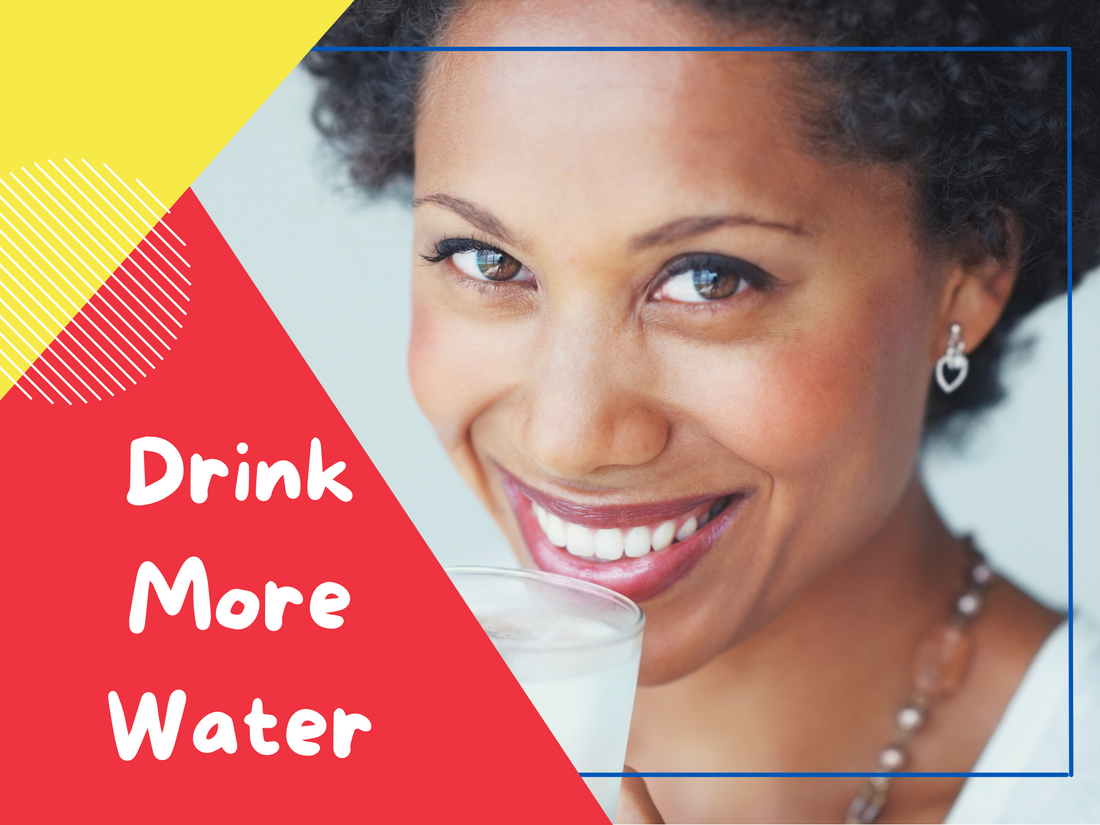It’s no secret among educators. If you’re a teacher, there’s a good chance you’re dehydrated. While research on the topic is unfortunately scant, teachers across the country have voiced their discontent with the tightness of their schedules. These tight schedules often force teachers to go several hours without going to the bathroom. According to NPR, the stress of the pandemic has only exacerbated the issue.
Considering how important hydration is to overall health (our bodies are 60% water), I encourage teachers to drink more water. It’s an easy step to make teachers sharper, more present, and more energetic both in and out of the classroom.
How much water should you drink every day?

The short answer is: Adult men should drink an average of 3.7 liters of water each day (about 8 standard 16 oz. water bottles). Adult women should drink roughly 2.7 liters of water (about 6 standard bottles).
However, the complete answer is a bit more complicated. The recommended amount of water to consume each day differs for individuals based on factors like body weight, lifestyle, diet, genetics, and climate.
And for an individual, ideal fluid intake can also vary day to day based on the weather and activity level. For teachers, this might mean drinking more glasses of water on the day of a field trip or large assembly than on a day spent grading papers or proctoring tests.
Consult your doctor for more personalized advice regarding your fluid intake.
How to Drink More Water
1. Invest in a reusable water bottle.
Everyone knows that reusable water bottles are good for the environment. Fewer people realize that they can also help you increase your daily water intake by making it easier and more fun to stay hydrated.
Reusable bottles can keep your beverage cooler for longer. Plus, a cute water bottle can liven up any desk or outfit.
2. Switch out your daily coffee or soda for Teacher Power.
While sugary drinks like soda and sports drinks contain water, they’re still not the healthiest choice. If you’re looking for a cleaner substitute that still tastes great, check out our four flavors of Teacher Power energy drinks.
If you want to keep the spirit of summer alive once the school year starts, I recommend the fruit punch flavor. It tastes great and has no calories or added sugar!
3. Eat foods high in water content.
How do you consume water without drinking? By eating!
May fruits and vegetables are high in water content, which can help keep you hydrated. My personal favorite hydrating foods are watermelon and cucumbers.3
How to Take More Bathroom Breaks
Once you start drinking more water, you will naturally have to use the bathroom more often. If you are concerned about fitting bathroom breaks into your schedule, plan ahead to avoid putting yourself in a potentially awkward or uncomfortable situation.
Consider making a deal with a co-worker in a nearby classroom to supervise each other’s classes for personal potty breaks. You might also put a responsible student in charge while you step away for a few minutes.
Hydrate With Teacher Power

Bored of plain old water? Me, too. But you don’t have to sacrifice flavor for health. With Teacher Power, you can have both! With zero calories and no sugar, each of our four energy drink flavors is designed to keep you moving even on your longest and busiest days. To learn more, browse our products or continue reading our blog.
The content of Teacher Power’s website is for information only, not advice or guarantee of outcome. Information is gathered and shared from reputable sources; however, Teacher Power is not responsible for errors or omissions in reporting or explanation. No individuals, including those taking Teacher Power products, should use the information, resources or tools contained within to self-diagnosis or self-treat any health-related condition. Teacher Power gives no assurance or warranty regarding the accuracy, timeliness or applicability of the content.
By: Meg Bywater
Sources:
1. Cardoza, Kavitha. “'We Need to Be Nurtured, Too': Many Teachers Say They're Reaching a Breaking Point.” NPR, NPR, 19 Apr. 2021, www.npr.org/2021/04/19/988211478/we-need-to-be-nurtured-too-many-teachers-say-theyre-reaching-a-breaking-point
2. Gunnars, Kris. “How Much Water Should You Drink per Day?” Healthline, Healthline Media, 5 Nov. 2020, www.healthline.com/nutrition/how-much-water-should-you-drink-per-day#how-much-you-need
3. Leech, Joe. “7 Reasons Why You Should Drink More Water.” Healthline, Healthline Media, 30 June 2020, www.healthline.com/nutrition/7-health-benefits-of-water#1.-Helps-maximize-physical-performance
“How Much Water Should You Drink?” Harvard Health, 25 Mar. 2020, www.health.harvard.edu/staying-healthy/how-much-water-should-you-drink
Steinhilber, Brianna. “What You Should Know about Drinking Water (but Probably Don't).” NBCNews.com, NBCUniversal News Group, 23 Feb. 2018, www.nbcnews.com/better/diet-fitness/down-low-h20-n760721

